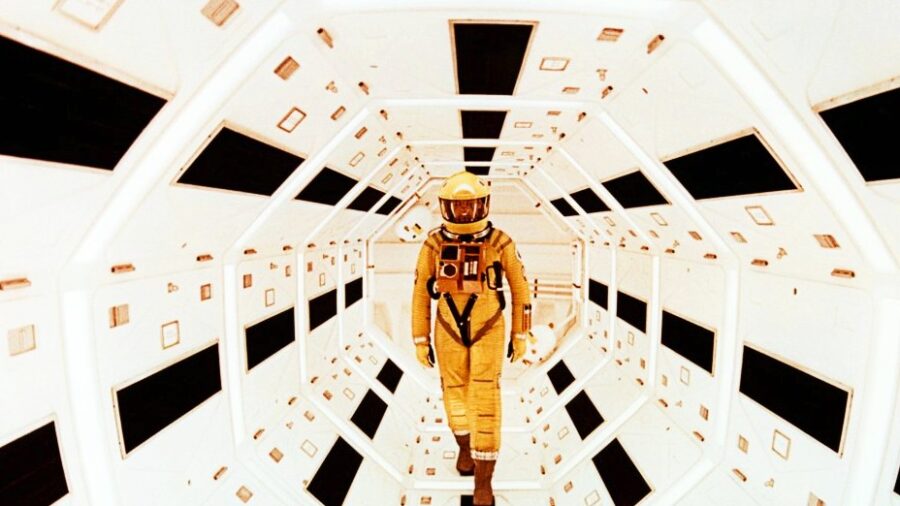The Stanley Kubrick Letter That Made Arthur C. Clarke Work On His Biggest Movie

Stanley Kubrick’s 1968 film 2001: A Space Odyssey is one of the most influential movies ever made. Its reach and appeal affected the way sci-fi movies were viewed. Until then, sci-fi films were campy, fun space adventures, but what Kubrick and writer Arthur C. Clarke developed was something more lasting and moving. On March 31st 1964, Stanley Kubrick sent a letter in the mail and changed the course of cinema forever.
Stanley Kubrick wrote a correspondence letter to Clarke to express his admiration for the novelist’s work and to perhaps pique his interest in collaborating together on a screenplay to make “the proverbial ‘really good’ science-fiction movie.”
Stanley Kubrick even plotted three points he wanted to get out of the project. Here those are those points.
My main interest lies along these broad areas, naturally assuming great plot and character:
1. The reasons for believing in the existence of intelligent extra-terrestrial life.
2. The impact (and perhaps even lack of impact in some quarters) such discovery would have on Earth in the near future.
3. A space probe with a landing and exploration of the Moon and Mars.
It’s amazing how 2001: A Space Odyssey did all three things in a very convincing manner.
At the end of the letter, Stanley Kubrick urged Clarke to make his schedule flexible when he planned his trip to New York for the summer. He says…
Roger tells me you are planning to come to New York this summer. Do you have an inflexible schedule? If not, would you consider coming sooner with a view to a meeting, the purpose of which would be to determine whether an idea might exist or arise which could sufficiently interest both of us enough to want to collaborate on a screenplay?
They met three weeks later, on April 22nd, at the Plaza Hotel in New York. Clarke recounted the experience in his biography where he stated that they “talked for eight solid hours about science fiction.” Imagine being in the same room during that conversation.
Four years later in 1968, Stanley Kubrick and Arthur C. Clarke released 2001: A Space Odyssey and they will be forever linked as two artists who elevated the science fiction genre and changed the way movies are put together.
2001: A Space Odyssey set a new standard for the sci-fi genre, and really just movies in general. Sure, there was the innovative use of special effects, and its rather ambitious narrative structure. But it was also ahead of its time when it came to human evolution, artificial intelligence, and extraterrestrial life.
Unlike other movies from that time, the movie has a realistic depiction of space travel, wants to get the scientific accurate, and had pioneering visual effects to challenge others making movies at the time. The movie is, for sure, a cultural touchstone.
From those standpoints, Stanley Kubrick executed on the things he initially outlined in the letter to Arthur C. Clarke. There was more, obviously, but when it came to his vision around the flick, he had it from the jump.
Plus, it, of course, gave us HAL 9000, and that alone seems worth it.












